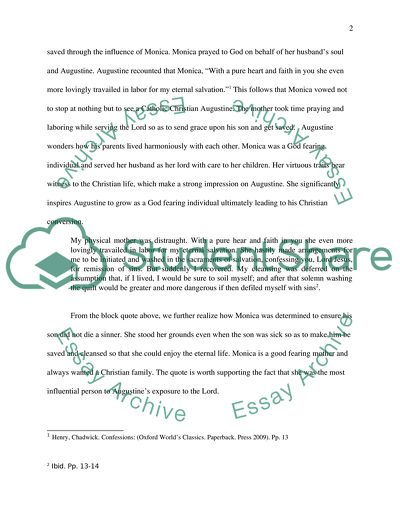Cite this document
(“SAINT AUGUSTINE'S CONFESSION Essay Example | Topics and Well Written Essays - 1250 words”, n.d.)
Retrieved from https://studentshare.org/religion-and-theology/1661405-saint-augustines-confession
Retrieved from https://studentshare.org/religion-and-theology/1661405-saint-augustines-confession
(SAINT AUGUSTINE'S CONFESSION Essay Example | Topics and Well Written Essays - 1250 Words)
https://studentshare.org/religion-and-theology/1661405-saint-augustines-confession.
https://studentshare.org/religion-and-theology/1661405-saint-augustines-confession.
“SAINT AUGUSTINE'S CONFESSION Essay Example | Topics and Well Written Essays - 1250 Words”, n.d. https://studentshare.org/religion-and-theology/1661405-saint-augustines-confession.


